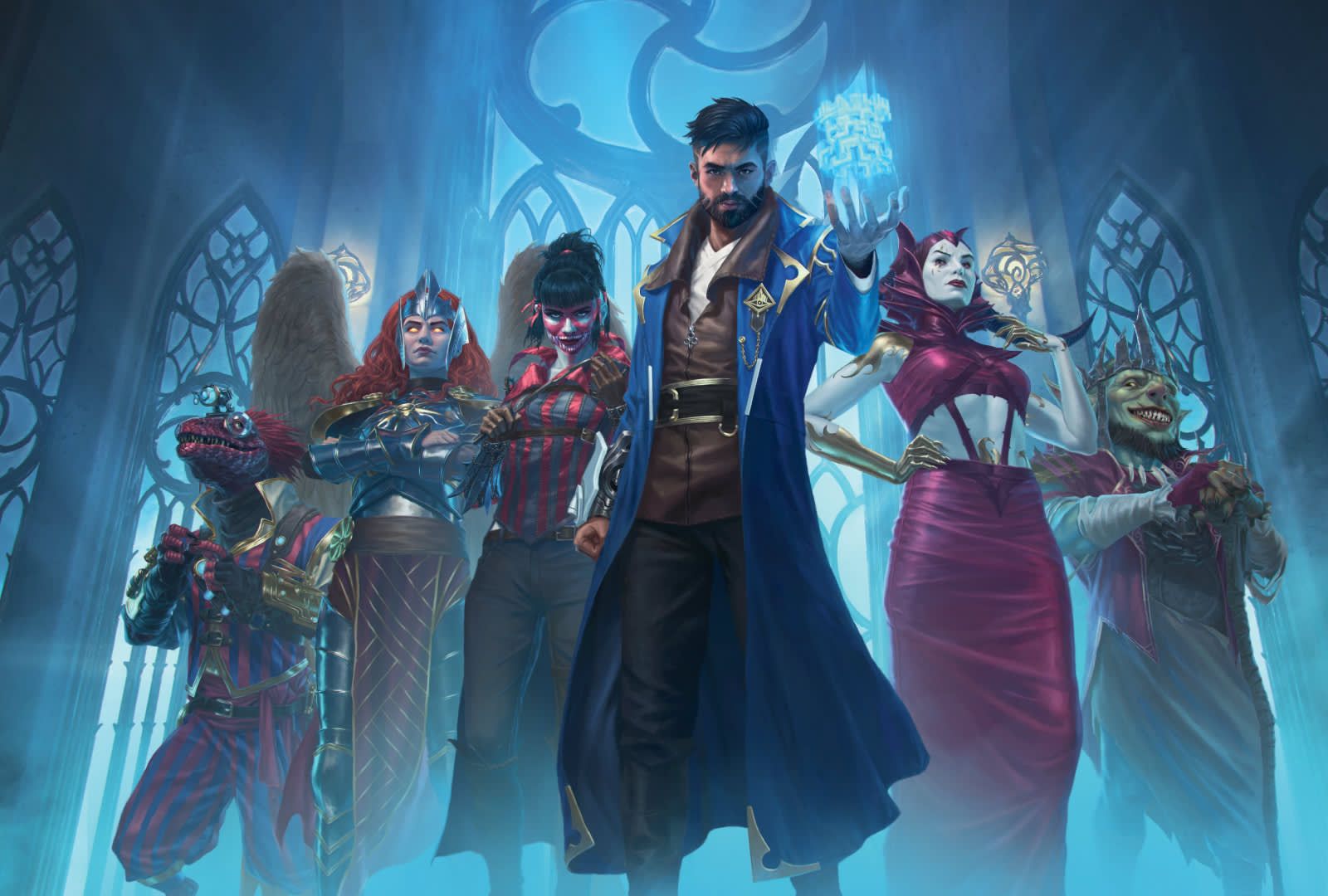Yes, I will play Magic: The Gathering crossed with Clue
Guildmage Boddy is dead, and the killer is right here in this room.
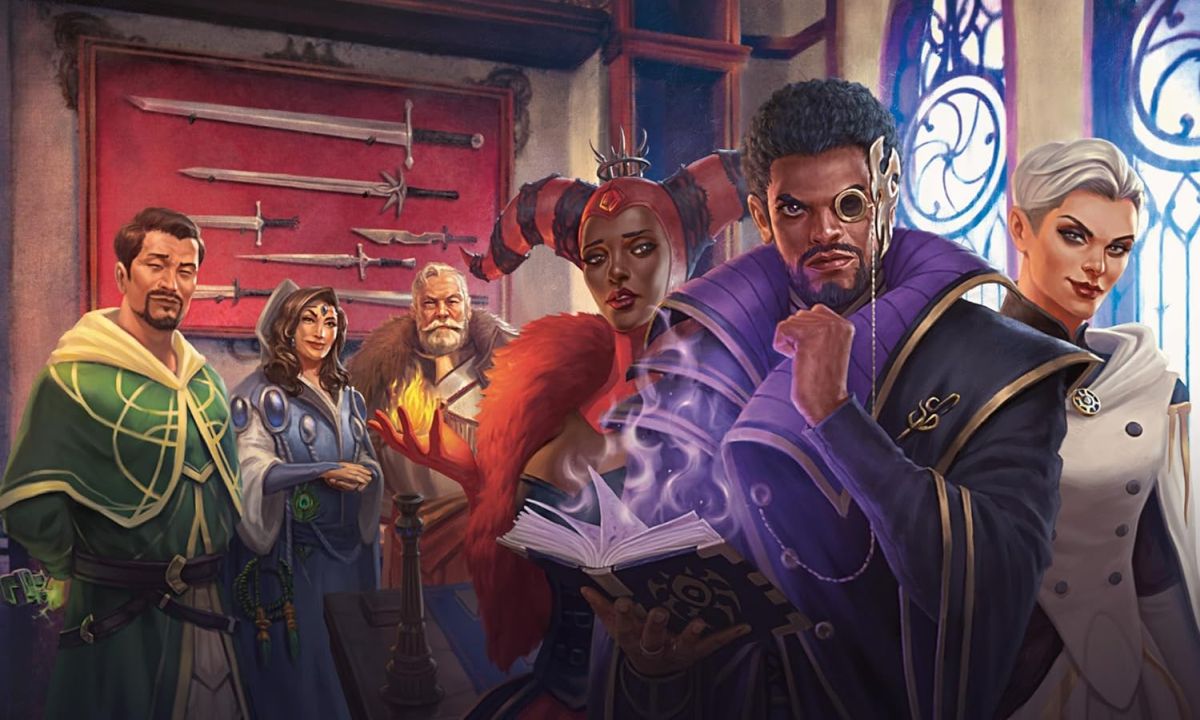
Clue, or Cluedo for non-Americans, is my favorite family board game. (Great movie too.) It's the kind of thing you can bring out when you're not playing with people who know every Catan expansion front-to-back and are halfway through some giant legacy game and have like three Kickstarters they're waiting on. Clue is a game you can play with your parents and cousins, but maybe not your Magic: The Gathering group. Until now.
Ravnica: Clue Edition combos Clue and Magic into each other like it's casting Channel to power up a Fireball. You're playing a four-player game of Magic in a fairly normal way, albeit with cards likely to be themed around Murder and Undercover Butlers and other clichés of the mystery genre, but there's also a set of evidence cards just like the ones in Clue: suspects, weapons, and locations. These you put aside rather than shuffling them into your decks (though they are also Magic cards and are temptingly Commander-legal). Instead you randomly select one of each and hide them in a case file envelope in the middle of the table just like in a game of Clue. You can win by simply defeating the other players at Magic, but you can also win by successfully deducing which three cards are in that secret envelope.
In addition to the hand you're playing Magic with, everyone has a separate face-down hand containing an equal number of the leftover suspects, weapons, and locations. As in Clue you can suggest a trio on your turn—I suspect Commander Mustard in the billiard room with the lead pipe—but unlike Clue, you're only allowed to make a suggestion if you either damage an opponent by attacking them with a creature, or exile six discards from your graveyard. The first of those two options is the main one that'll get used, because it's what you should be doing when you play Magic anyway.
Well, usually. If you've played Commander you'll be familiar with the kind of polite stand-offs that can develop in a four-player game. Nobody wants to be first to go on the attack, so everyone builds their little army until someone notices the time and finally starts swinging. Ravnica: Clue Edition discourages that, giving you a good reason to go on the offensive even if it means being a bit rude. It's worth spreading attacks among multiple players too, because while you can only make one suggestion per turn, if your first opponent doesn't have any relevant cards to show you, the suggestion then carries over to the next player you hurt so they get a chance to disprove the assertion.
In another clever twist, whoever shows you one of their pieces of evidence gets a free Treasure token, which can be cashed in on their turn for one mana of any color. That means players who get picked on get a free leg-up, and are able to bring out their heavy-hitters faster. You're motivated to play aggressively, but those who get picked on have an opportunity to bounce back rather than just feeling bullied.
Once you've narrowed down the list of suspects, you can make an accusation at the end of your turn, which you don't need to attack anyone to do. You can only ever make one accusation per game though, because afterward you get to look in the envelope. If you were right you win the game, but if you were wrong you've still got a chance to score a victory.
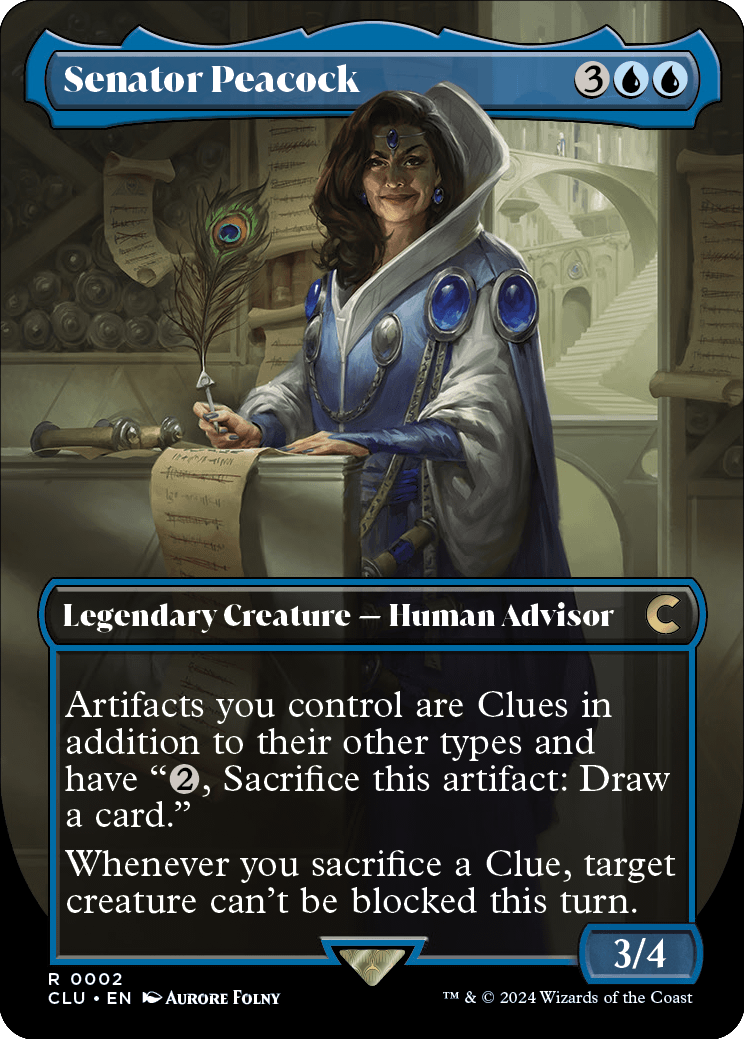
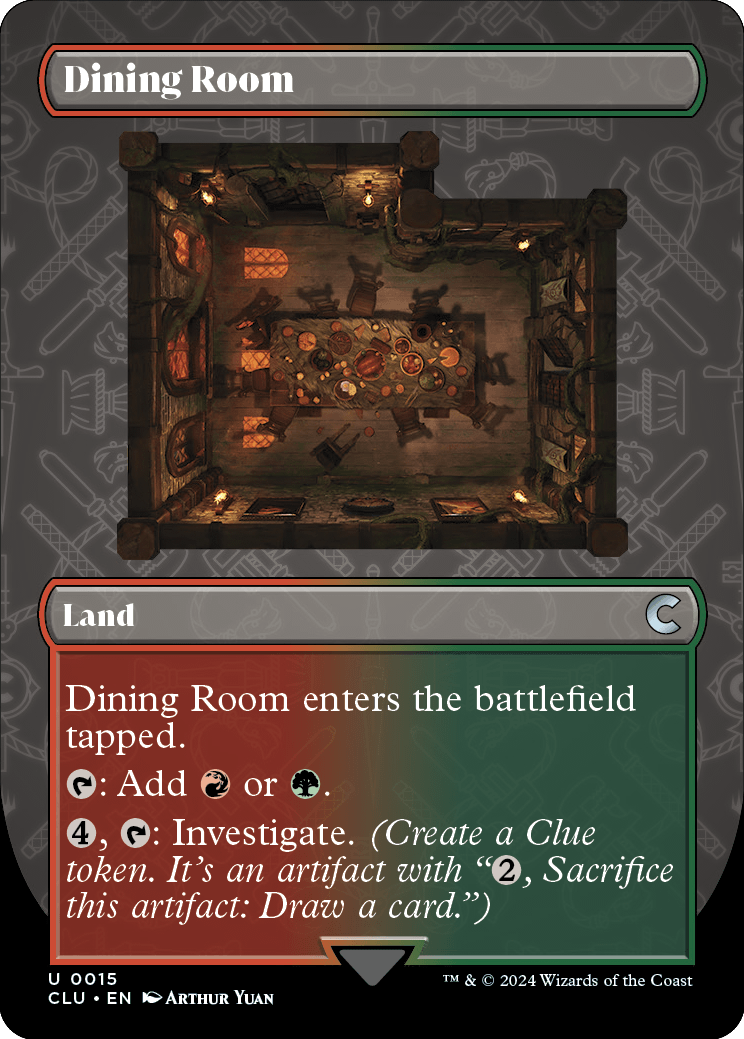
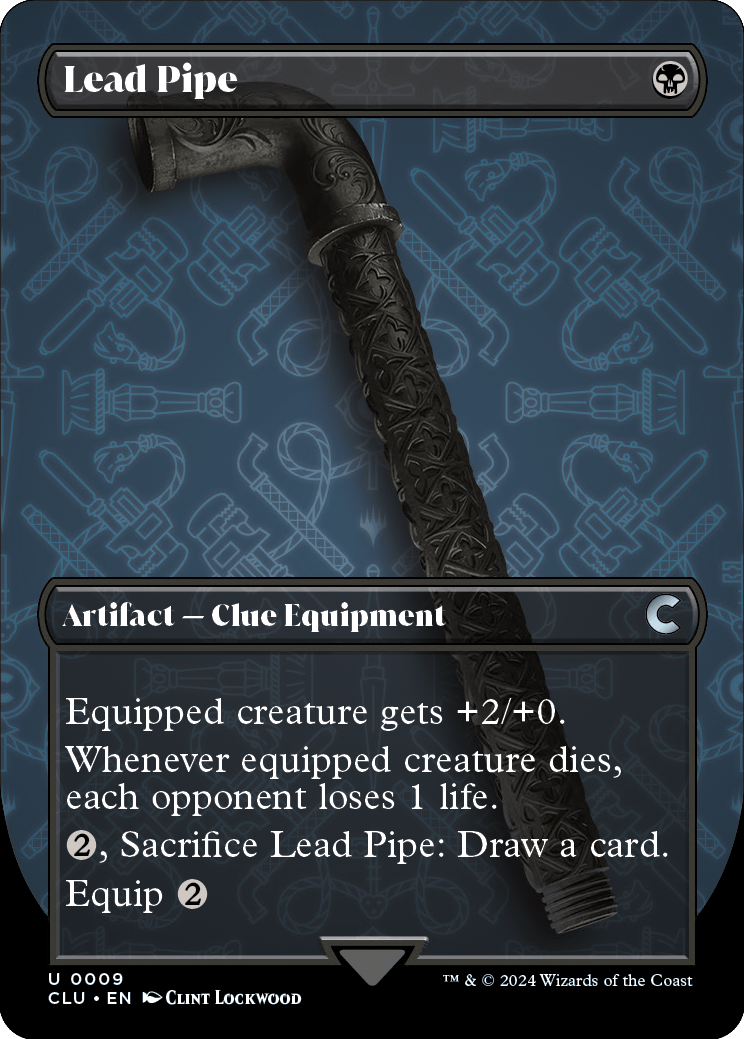
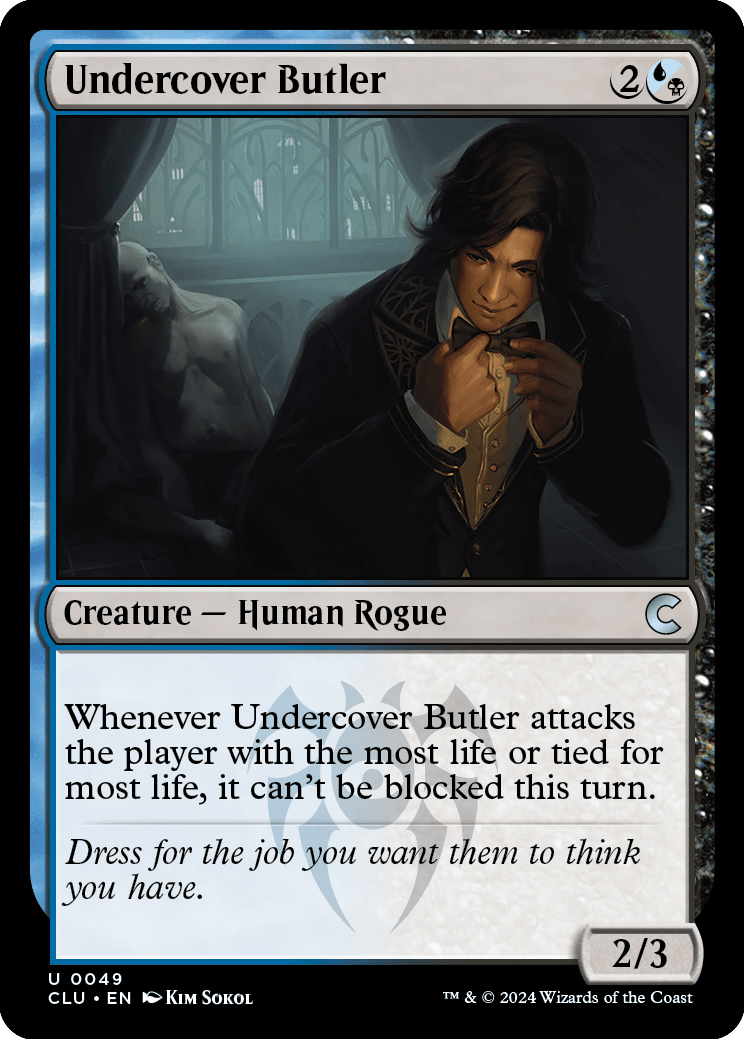
Unlike in Clue, where players who get an accusation wrong are disqualified and have to sit out the rest of the game, in Ravnica: Clue Edition you get to keep playing. Though you can't make any more suggestions or accusations, you can win by defeating the other players in the regular game of Magic you've been playing this whole time. It's a competitive murder mystery you can win by murdering the other detectives.
Keep up to date with the most important stories and the best deals, as picked by the PC Gamer team.
Those rules solve some of the problems of multiplayer Magic, as well as some of the issues Clue has. As well as being a version of Clue where a player who goofs an accusation doesn't have to wander off to watch TV while the rest of you finish playing, it's also a version of Clue where you don't have to roll dice to see if you make it to a room each turn. Playing a hand of Magic is a more interesting bit of friction to break up the guessing-game than rolling a three and knowing you can't make it to the ballroom, even though that's really where you want to be because you've already ruled out the goddamn conservatory.
And even if the others gang up on you, once you know you're about to lose by being eliminated you can take an educated guess, making an accusation on the turn before you get wiped out and potentially winning anyway. It adds another neat comeback mechanic to Magic alongside the Treasure-earning one.
Ravnica: Clue Edition is part of a bigger mystery-themed set, called Murders at Karlov Manor. That includes a series of preconstructed Commander decks—of which I'll be playing the merfolk detective deck called Deep Clue Sea because I'm a sucker for puns—and the usual variety of new cards for Standard play.
In my first game with the new cards my black/red deck got to make use of this set's suspicion mechanic. Marking my own cards as Suspects, like the Frantic Scapegoat, gave them Menace, meaning they could only be blocked by multiple creatures. Detectives travel in pairs for a reason, after all. As a trade-off, my Suspects couldn't block if I was attacked, which ended up being my downfall.
My opponent made good use of the Disguise mechanic, which lets you play a card facedown as a mysterious 2/2 with Ward 2, meaning it costs an extra two mana to target with a spell or ability. Later on, for its Disguise cost, you can reveal it and trigger whatever effect it has. My own Offender at Large gave +2 to a target when revealed, for example. That kept me alive for another turn, but wasn't enough to save my hide in the end. Frankly, I'm better at Clue than I am at Magic.
Murders at Karlov Manor is currently available in Magic: The Gathering Arena and in paper Magic as of February 9. Ravnica: Clue Edition comes out on February 23.

Jody's first computer was a Commodore 64, so he remembers having to use a code wheel to play Pool of Radiance. A former music journalist who interviewed everyone from Giorgio Moroder to Trent Reznor, Jody also co-hosted Australia's first radio show about videogames, Zed Games. He's written for Rock Paper Shotgun, The Big Issue, GamesRadar, Zam, Glixel, Five Out of Ten Magazine, and Playboy.com, whose cheques with the bunny logo made for fun conversations at the bank. Jody's first article for PC Gamer was about the audio of Alien Isolation, published in 2015, and since then he's written about why Silent Hill belongs on PC, why Recettear: An Item Shop's Tale is the best fantasy shopkeeper tycoon game, and how weird Lost Ark can get. Jody edited PC Gamer Indie from 2017 to 2018, and he eventually lived up to his promise to play every Warhammer videogame.
